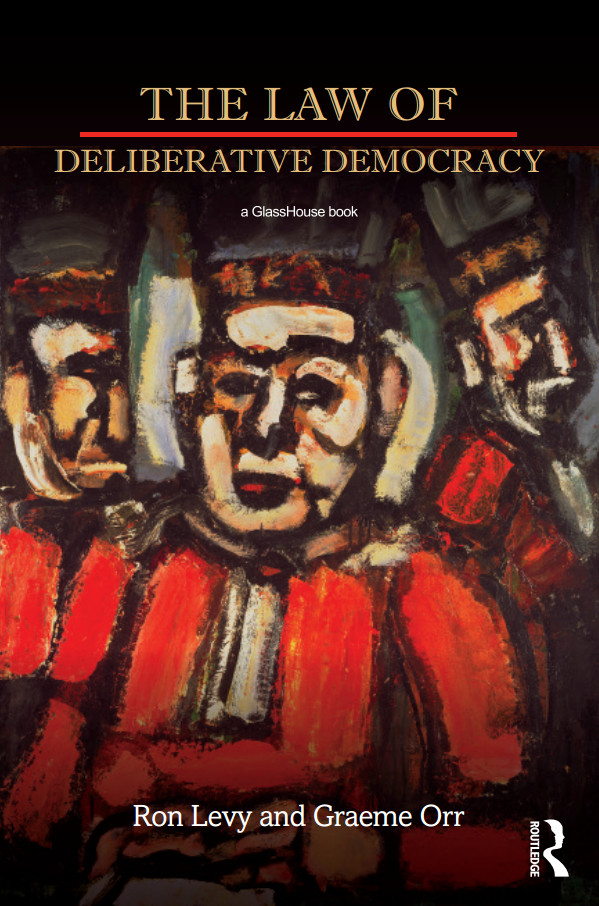The Law of Deliberative Democracy Book Launch
Venue
Level 12, QEII Courts of Law, 415 George Street, Brisbane
 Professor Graeme Orr co-authored The Law of Deliberative Democracy, with Ron Levy (ANU). The book will be launched Tuesday, 15 November 2016 at the Supreme Court Library, with an address by Justice Peter Applegarth of the Supreme Court of Queensland.
Professor Graeme Orr co-authored The Law of Deliberative Democracy, with Ron Levy (ANU). The book will be launched Tuesday, 15 November 2016 at the Supreme Court Library, with an address by Justice Peter Applegarth of the Supreme Court of Queensland.
This research is funded by the Australian Research Council's Discovery Project scheme (project number DP130100706).
About the book
Laws have colonised most of the corners of political practice, and now substantially determine the process and even the product of democracy. Yet analysis of these laws of politics has been hobbled by a limited set of theories about politics. Largely absent is the perspective of deliberative democracy – a rising theme in political studies that seeks a more rational, cooperative, informed, and truly democratic politics. Legal and political scholarship often view each other in reductive terms. This book breaks through such caricatures to provide the first full-length examination of whether and how the law of politics can match deliberative democratic ideals.
Essential reading for those interested in either law or politics, the book presents a challenging critique of laws governing electoral politics in the English-speaking world. Judges often act as spoilers, vetoing or naively reshaping schemes meant to enhance deliberation. This pattern testifies to deliberation’s weak penetration into legal consciousness. It is also a fault of deliberative democracy scholarship itself, which says little about how deliberation connects with the actual practice of law. Superficially, the law of politics and deliberative democracy appear starkly incompatible. Yet, after laying out this critique, The Law of Deliberative Democracy considers prospects for reform. The book contends that the conflict between law and public deliberation is not inevitable: it results from judicial and legislative choices. An extended, original analysis demonstrates how lawyers and deliberativists can engage with each other to bridge their two solitudes.
Readers’ Reviews
John Dryzek (Director, Centre for Deliberative Democracy and Global Governance, University of Canberra)
Anyone who cares about democracy should also care about the ways law can promote, impede, or regulate public deliberation. The Law of Deliberative Democracy is a masterful treatment of the ways in which lawyers and deliberative democrats can learn from each other in thinking about these key issues. As such it is essential reading for those concerned with the legal and democratic underpinnings of the quality of governance in contemporary societies.
Nicholas Stephanopoulos (University of Chicago Law School)
In their astute new book, Levy and Orr illuminate how deliberation both shapes election law and is shaped by it. The authors have succeeded in that rarest of projects: the inauguration of a new academic field. The law of deliberative democracy is a novel and vital domain, and one whose depths only Levy and Orr have plumbed.
Stephen Tierney (Director, Edinburgh Centre for Constitutional Law, University of Edinburgh)
Levy and Orr grapple with the theoretical and empirical issues involved in re-engaging meaningfully with citizens at the constitutional level, exploring how law can both facilitate and impede citizen participation. In doing so, they help demonstrate how deliberative democracy opens the legal imagination to innovative practices in citizen engagement, and how these new practices can help return political control of the constitution to the people in whose name its legitimacy ultimately rests.
